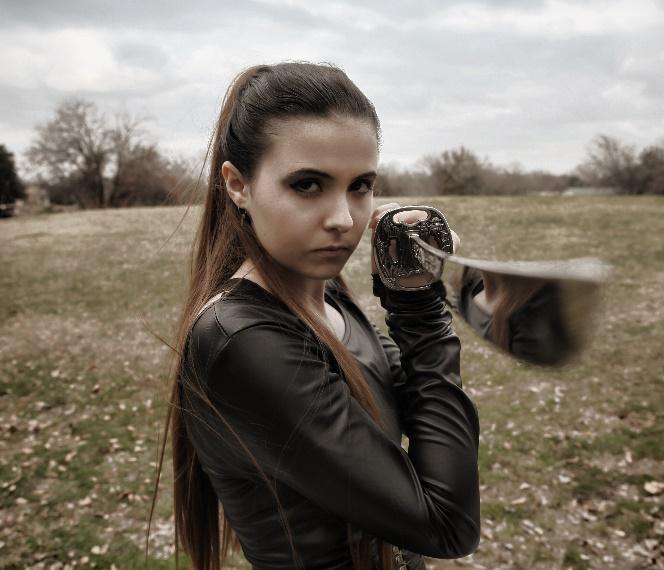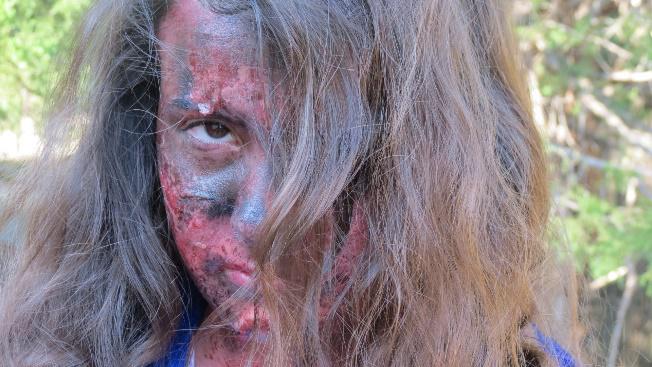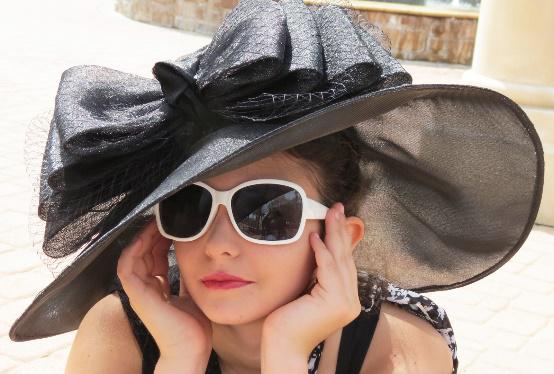ACTING 101 - Typecasting
- Written by Paris Hepburn

Typecasting. Typecasting and branding can sometimes be used simultaneously. They actually can go hand in hand. Typecasting refers to the image that the actor’s casting, director, producer and audience seems them as. Branding is the image that the actor themselves have developed so that casting, director’s, producer’s, and audience’s see their strengths in certain areas. How do you know your type, or branding, as an actor? I know I certainly don’t want to be type cased early on and spend the rest of my career playing one type of role. So let’s take a look at this closer.
Children are usually not type casted. They can play a variety of roles and not get stuck in one character for the rest of their life. When an actor gets around 15 they start developing their own character and start getting typed casted. Director and producers don’t want the silly, funny and carefree kid that they saw in the last few films. They want to see a more mature developed person that can play different roles with the same kind of enthusiasm as they did when they were children. Many child actors find it difficult to make the transition from child actor to adult actor.
So what exactly is type casting? Well it’s being pigeoned holed into doing one particular part over and over again. Haven’t we seen that before? Milli Bobbie Brown will always be remembered as Eleven. Emma Watson is known as Hermione no matter how old she gets. Arnold Swartznegger is well known as the Terminator…I’ll be back. Jim Carrey as the funny guy in the Mask or The Grinch stole Christmas. The list goes on and on. We expect to see certain actors being played out in certain roles.
Understanding your type is absolutely essential. That will carry you on into looking for the right parts to play and significantly increase the roles for auditions. As an actor we want to work as much as possible and not waste time on roles that are not fit for us or we really don’t enjoy. One of the first steps in finding your niche is to explore all the things you like and not like to do. Do you remember doing something during your childhood that you were really good at? Find that characteristic that audiences will want you to come back for more and more. Consider yourself as a product you are selling. What is it that you are going to sell to your people? What types of people enjoy what you have to offer?
Typecasting and branding can go hand in hand. When I was 14, I started to understand my brand. Before that, I played a variety of roles from horror, quirky, serious, silly, and practically any role someone wanted me to play. Then people started commenting about how much I look like Audrey Hepburn. They were astonished to know that I was actually related to her. This made it even more impressive to my audience. So I decided to build myself around the idea of an Audrey Hepburn type person. But of course, myself. I didn’t want to be an exact duplicate of her but my own image of what she is like.

I found myself liking the way Audrey portrayed herself. I could see myself acting in roles like she did. I am very athletic and found myself leaning toward action roles that portrayed good, loving and caring characters. I am not necessarily a quite person, so I like to be in movies such as Avengers, Star Trek, Star Wars, and movies that have a lot of action and a story line of doing good.
There is one thing to go against typecasting when you’re an established actor and quite another if you are just starting out. When you first start out, you want to take all kinds of roles and see which ones fit you the best. Believe you me, you will soon find out. As you progress through your roles you will come to establish which roles were exciting to you and which ones are not. When you start to understand which roles are good for you and which are not, looking for roles and auditions will become easier. The benefit of knowing yourself is to be able to market yourself successfully in looking for auditions. Your audience will come to expect the same kind of person you are each and every time you play your role. You will also know how to shoot headshots and sell them to casting, directors and producers. The process of submitting yourself becomes much easier when you know your type. The chances of booking roles that suit you will be much higher.
Once you know what kind of actor you are, then you can decide what market you fit in best. Does your branding apply to the stage, film, TV, commercials, corporate or anything else you find interests you are all important things you have to consider? Then there is the matter of looks, age, traits, and anything else that makes you stand out so people can recognize you.
Looks. Make a realistic evaluation about your looks. Casting, directors, and producers are always looking for different people of diverse shapes, sizes and ethnic backgrounds. They want to fit the right person for the right role. Be honest about who you are. Do you see yourself as a leading person, geeky, muscular, overweight, bald, or whatever you see in the mirror? Do you see yourself doing horror, comedy, drama or something else? What makes you stand out from all the rest such as tattoos, braces, moles or other characteristics that are unusual?
Age. This is very important to know and not just your physical age on your birth certificate. Age is the age that you look like to others. If you look like a teenager when you’re twenty-five then your range could be a teenager to twenty-five. Casting, directors, and producers like to have actors that are older play younger roles because of the experience that older actors have accumulated over the years. Older playing younger helps in understanding roles and emotions better because the older actor has had those types of emotions. I can roles from twelve to twenty-four but I try to stay around fifteen to nineteen. I think I am best suited for those roles.
Traits. Well what is a trait? A trait is your character, personality, originality, temperament, uniqueness and anything else that makes you who you are. If you are funny and witty then casting, directors and producers will cast you in those types of roles. Are you quirky, stubborn, thoughtful, serious, quiet, shy, and energetic or something else that makes you who you are?

Actor Type. The industry of casting directors, film directors and producers look at you and determine what type of actor you are the way they see you. That is why it is good to have already made that determination before they determine that for you. When you establish characteristics about yourself and sell them that way, then you are branding yourself. At the beginning of this article I talked a little about the difference between typecasting and branding. Even though there are subtle differences, there is a difference.
Acting/Improv/Workshops. Getting a handle on who you can best be recognized for is participating in classes. Acting classes help in developing your character. Who do I play the best? I am really good at playing different characters and emotions. I can usually hit it right off the bat. But when it comes to improv, I know that is my biggest downfall. Since I am a thinker and a character developer, I really have to work at this. Improv makes you think on your feet. It helps you to be quick in your actions when you need to be. Workshops are so very important. I can’t stress how important they are. Different workshops teach you about how to audition, stand in front of the camera, tips on acting in general or for a particular theme. I took many workshops for Disney. They were a lot of fun. I found out a lot about myself during these sessions. I found out that I wasn’t that happy with the silliness and goofiness but more interested in more serious roles, action and drama.
Family/Friends/Workers. Who knows you better than the people that know you the best? Ask them to be your audience. More than likely, they will see you in the same light as a casting, director or producer will. Make a list of questions that you think they would answer honestly about you. Chances are if you start getting the same answers, you might want to take a closer look at what everyone is seeing in you. Don’t be surprised if your acting persona is completely the opposite than the real person you are. The conclusion is to embrace your type whatever it is.


